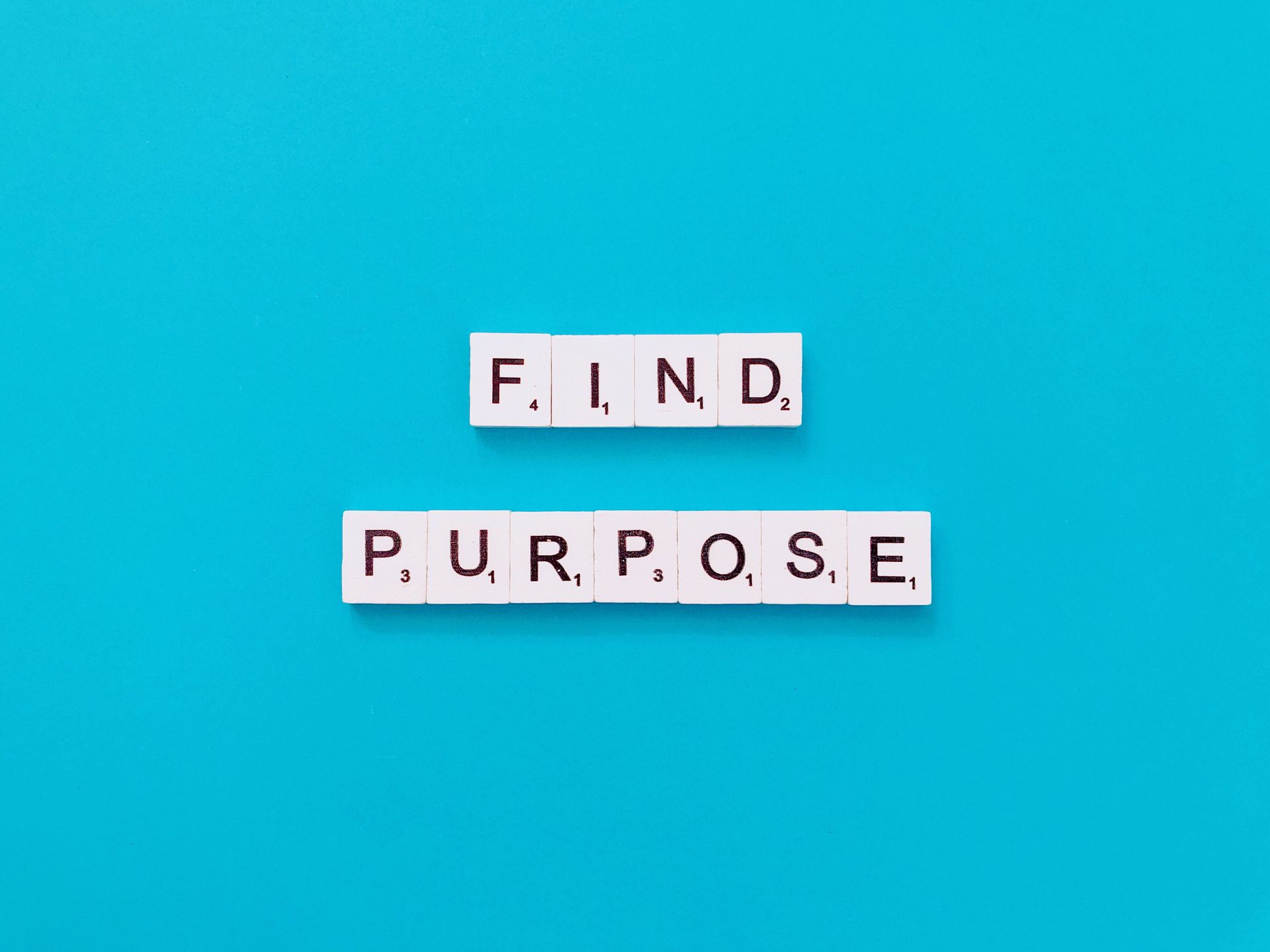// You Bridge Health
Therapy Not Enough? When to Consider Medication for Mental Health.
Explore When Therapy Might Not Be Enough, How Mental Health Medications Can Help, and What to Know
Many people start their mental health journey with therapy, but what happens when the progress stalls? If you’ve been working hard in therapy sessions and still find yourself stuck, you may be asking:
Do I need meds? This article explores the often complex relationship between therapy and medication in treating mental health conditions. Learn how to recognize treatment-resistant symptoms, understand different types of medications, and determine when medication and therapy together might be the right path for you.
Article Outline: When to Consider Mental Health Medications
1. Is Therapy Alone Enough for Mental Health?
2. When Should You Consider Taking Mental Health Medication?
3. What to Know About Mental Health Medications Before Starting
4. How Do Antidepressants Work and When Are They Used?
5. What Are Mood Stabilizers and Who Are They For?
6. Do You Need Antipsychotics If You Don’t Have Schizophrenia?
7. What Are Anti-Anxiety Medications and Are They Safe?
8. How to Recognize Treatment-Resistant Depression
9. Why Medication and Therapy Together Often Work Best
10. What to Ask Your Doctor Before You Take Medication
Is Therapy Alone Enough for Mental Health?
Therapy is a powerful tool, especially when guided by a qualified mental health professional. Techniques like cognitive behavioral therapy and psychotherapy can help individuals develop coping skills, improve self-awareness, and reduce depression symptoms or symptoms of anxiety. But for some people, therapy alone may not be enough.
When someone has a mental health condition that stems from changes in brain chemistry, a pharmacological approach might be necessary. Therapy helps you understand why you feel a certain way, while medication treatment can change how you feel physically and mentally.
In cases like bipolar disorder, major depression, or severe anxiety disorders, a combination of therapy and medication can significantly improve daily functioning and quality of life.
When Should You Consider Taking Mental Health Medication?
You may want to take medication if:
- You’ve tried therapy for several months without significant improvement
- You experience suicidal thoughts, hallucinations, or a loss of contact with reality
- Your symptoms interfere with daily life, relationships, or work
- You have a family history of mental health issues like depression or bipolar
Sometimes, people with depression feel stuck because therapy helps them understand their behavior, but not enough to ease depression. This might signal treatment-resistant patterns that require a different approach.
Always work with a health care provider or provider who specializes in psychiatry to determine whether mental health medication is a helpful next step in your treatment plan.
What to Know About Mental Health Medications Before Starting
Before starting prescribed medication, it’s essential to understand both the benefits and potential serious side effects. Mental health medications don’t work instantly, it may take several weeks for the medication to work and for you to notice changes.
Here’s what you should know:
- Different people respond to medications in different ways
- It may take several tries to find the right medication or dosage
- Medication management requires regular check-ins with your provider
- Psychotherapy and medications are often used in combination for optimal results
Ask about long-term effects, interactions with other substances (especially if substance use is a factor), and how the medication fits into your broader treatment plan.
How Do Antidepressants Work and When Are They Used?
Antidepressant medications are commonly prescribed for depression and anxiety. They work by adjusting neurotransmitters in the brain, most commonly serotonin, to improve mood, energy, and focus.
Types of antidepressants include:
- SSRIs (e.g., fluoxetine, sertraline)
- SNRIs (e.g., venlafaxine, duloxetine)
- Monoamine oxidase inhibitors (MAOIs), used when other options fail
It can take time for an antidepressant to take effect, often 4 to 6 weeks. Some people feel better quickly, while others need to try different options. Remember: it may take several tries to find the right fit, so stick with the treatment.
What Are Mood Stabilizers and Who Are They For?
Mood stabilizers are primarily used in the treatment of depression with manic elements, such as in bipolar disorder. These medications help balance mania and depression, preventing extreme mood swings.
Common mood stabilizers include:
- Lithium
- Valproate
- Lamotrigine
They can also be used in combination with an antidepressant for people who experience mixed symptoms. Because bipolar symptoms can be hard to diagnose, always work with a primary care physician or psychiatrist to monitor your progress.
Do You Need Antipsychotics If You Don’t Have Schizophrenia?
While antipsychotic medications are commonly associated with schizophrenia, they’re also widely used to treat other mental health conditions, including bipolar disorder, depression, OCD, and even certain anxiety disorders.
For example, medications like aripiprazole or quetiapine are sometimes added to antidepressants to help with treatment-resistant depression. This doesn’t mean the person is psychotic, rather, it's part of a comprehensive approach to address the most distressing symptoms and treat the root cause of a person’s mental health struggles.
At You Bridge Health, we believe in tailoring treatment to the individual. In psychiatry, medications like antipsychotics are often used interchangeably or in combination with other medications, depending on the symptoms being treated.
It’s important to remember that all medications, not just psychiatric ones, should be prescribed and monitored carefully to ensure they’re effective and safe. That’s why consistent follow-up and medication management are essential parts of care.
Used appropriately, antipsychotics can be a helpful tool in a broader treatment plan that supports long-term mental wellness.
What Are Anti-Anxiety Medications and Are They Safe?
Anti-anxiety medications are commonly prescribed for short-term relief from intense anxiety symptoms, such as panic attacks or insomnia. One of the most well-known types, benzodiazepines, can be highly effective, but they are typically used with caution.
The potential for habit formation with benzodiazepines varies greatly from person to person. It's not solely about the medication itself, individual risk factors, such as a history of substance use or addictive behaviors, play a significant role. While some individuals may develop a dependence, many others use these medications as prescribed without issue. Healthcare providers carefully monitor and regulate their use to ensure they remain safe and therapeutic.
For long-term management of anxiety, safer and non-habit-forming options are often recommended, such as:
- Buspirone
- Selective Serotonin Reuptake Inhibitors (SSRIs) and other antidepressants
- Cognitive Behavioral Therapy (CBT), which can reduce or even eliminate the need for medication
In many cases, your provider may suggest combining medication with therapy to help build coping skills, improve emotional regulation, and support long-term mental wellness.
Stay tuned, we’ll be diving deeper into the topics of addiction and psychiatric medications in a future article.
How to Recognize Treatment-Resistant Depression
Treatment-resistant depression means that therapy, lifestyle changes, and one or more antidepressants haven’t provided enough relief. According to the National Institute of Mental Health, this condition affects millions of people.
Signs include:
- Little or no improvement after several types of treatment
- Ongoing depression symptoms despite consistent effort
- Emotional numbness or feeling like you’ve “tried everything”
If you suspect this applies to you, ask your doctor about alternative treatment options, including medications can help, brain stimulation therapies, or combining medications and therapy.
Why Medication and Therapy Together Often Work Best
According to the National Alliance on Mental Illness, medication and therapy used together are more effective than medication alone for many people. Therapy addresses behavioral and emotional patterns, while medications target biological factors like brain chemistry.
Here’s why the combo works:
- You learn to manage stress and develop coping mechanisms
- Your mood stabilizes, so you can engage better in therapy sessions
- You build insight and emotional resilience
This dual approach is especially helpful for depression in adults, children and adolescents, and people dealing with substance abuse and mental health challenges.
What to Ask Your Doctor Before You Take Medication
When speaking to your health care provider, ask the right questions to feel empowered and informed.
Good questions include:
- How long will it take for the medication to work?
- What are the most common serious side effects?
- How will this medication interact with other prescriptions or supplements?
- What should I do if I miss a dose?
- Will I need to taper off if I stop taking the medication?
Your doctor should also help create a treatment plan that includes regular follow-ups and medication management. If you don’t feel heard, consider a provider who specializes in psychiatry or mood disorders.
Key Takeaways: When Therapy Might Not Be Enough
- Therapy is essential, but sometimes, mental health medications are necessary for deeper recovery.
- Consider taking medication if your symptoms persist or worsen despite regular therapy.
- Conditions like treatment-resistant depression, bipolar, or severe anxiety often require types of medications such as antidepressants, mood stabilizers, or antipsychotics.
- Medications and therapy used together are more effective than either alone.
- Anti-anxiety medications can help, but should be used cautiously and short-term.
- It may take several tries to find the right medication. Don’t give up, different people respond differently.
- Always ask your doctor about risks, benefits, and how to monitor your progress.
If you’re struggling and wondering, “Do I need meds?”, you’re not alone. Finding the right mental health treatment is a journey, and you don’t have to walk it alone. Reach out to a trusted mental health professional to explore your options and create a plan that works for you.
SHARE THIS POST:
Adedoyin Kolawole, PMHNP-BC
Founder of You Bridge Health
Adedoyin is not just a psychiatric nurse practitioner, she’s someone who has walked through burnout, wrestled with purpose, and found clarity on the other side. Her journey is living proof that when you truly understand yourself, healing begins. With over a decade of experience and a gift for seeing the whole person, Adedoyin founded You Bridge Health to help others feel supported, not just treated. Her approach is honest, empowering, and rooted in faith, helping each client move from feeling stuck to discovering their greatness , one step at a time.
Recent Posts:



